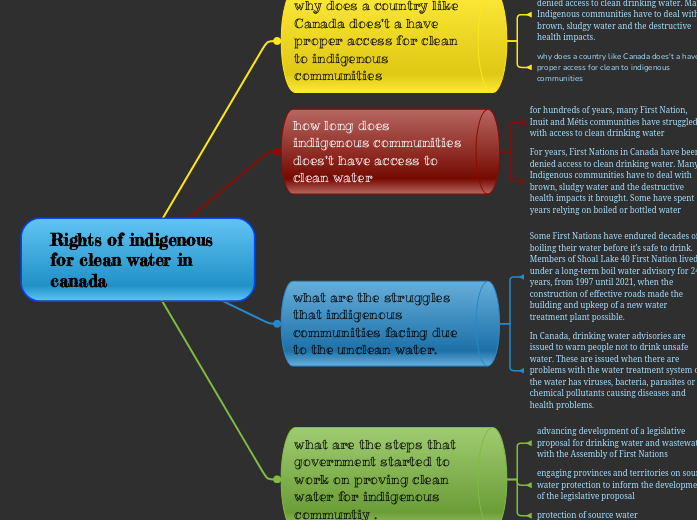Rights of indigenous for clean water in canada
why does a country like Canada does't a have proper access for clean to indigenous communities
For years, First Nations in Canada have been denied access to clean drinking water. Many Indigenous communities have to deal with brown, sludgy water and the destructive health impacts.
why does a country like Canada does't a have proper access for clean to indigenous communities
how long does indigenous communities does't have access to clean water
for hundreds of years, many First Nation, Inuit and Métis communities have struggled with access to clean drinking water
For years, First Nations in Canada have been denied access to clean drinking water. Many Indigenous communities have to deal with brown, sludgy water and the destructive health impacts it brought. Some have spent years relying on boiled or bottled water
what are the struggles that indigenous communities facing due to the unclean water.
Some First Nations have endured decades of boiling their water before it’s safe to drink. Members of Shoal Lake 40 First Nation lived under a long-term boil water advisory for 24 years, from 1997 until 2021, when the construction of effective roads made the building and upkeep of a new water treatment plant possible.
In Canada, drinking water advisories are issued to warn people not to drink unsafe water. These are issued when there are problems with the water treatment system or the water has viruses, bacteria, parasites or chemical pollutants causing diseases and health problems.
what are the steps that government started to work on proving clean water for indigenous communtiy .
advancing development of a legislative proposal for drinking water and wastewater with the Assembly of First Nations
engaging provinces and territories on source water protection to inform the development of the legislative proposal
protection of source water
